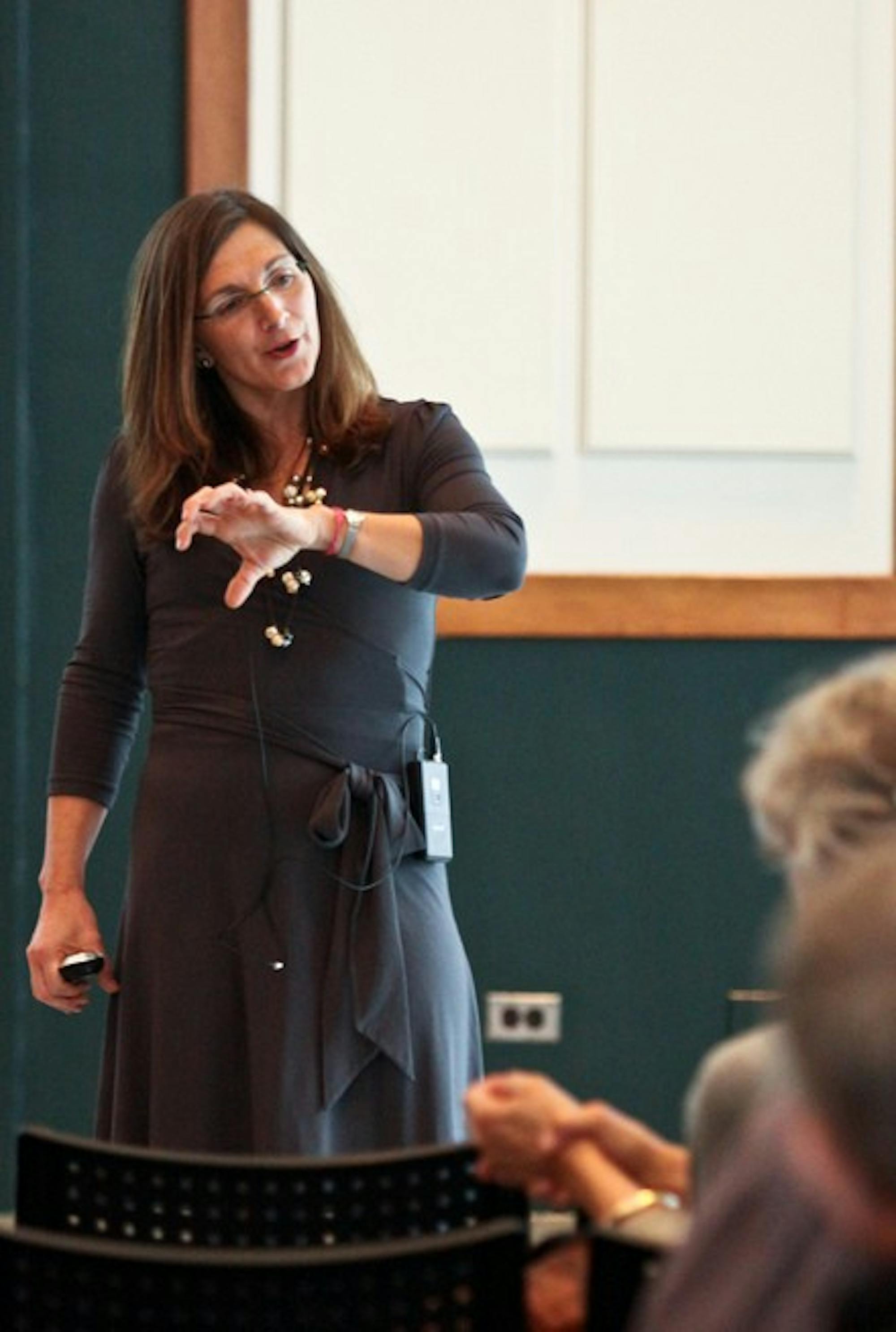While most Americans are well informed about the construction of the Berlin Wall and the 1980 Olympic hockey victory over the Soviet Union, few know about CEDAW, a Cold War-era United Nations treaty designed to grant women equal rights worldwide, Baldez said
When Baldez asked the audience, which consisted predominantly of Dartmouth alumni, how many had heard of CEDAW, only three people raised their hands.
"The people of the United States are at a distinct informational disadvantage because we've never even heard about CEDAW," Baldez said.
She attributed the United Nation's adoption of the treaty in 1979 to the work of a diverse coalition of well-known American female icons, Soviet women's rights activists, governments of non-aligned countries and "enlightened monarchs of Afghanistan and Iraq."
"It's a nonbinding treaty, but nonetheless it's been incredibly important around the world in ensuring women's rights," Baldez said. "Women's organizations have appealed to CEDAW as the international norm, as an international set of standards, to legitimate and strengthen their claims for enhanced access to women's rights."
A total of 185 countries have approved the treaty. The audience's shock was audible when Baldez listed the countries that have not: Iran, Nauru, Palau, Qatar, Somalia, Sudan, Tonga and the United States.
Former President Jimmy Carter signed the treaty in 1980, but Congress never ratified it. Each of three subsequent attempts to ratify the treaty has failed.
The ratification debate is generally split along partisan lines, with liberal groups supporting ratification and conservative organizations opposing it, Baldez said.
As an example, she presented a statement against CEDAW from the traditionally conservative group Concerned Women for America.
"CEDAW's content is contemporary colonialism," the statement reads. "It exports forces down the throats of signatory nations its Neo-Marxist agenda."
Baldez contrasted this view to a statement from the Working Group for Ratification of CEDAW, which argued that ratification would give the United States "far more leverage and credibility in the international community."
Treaty advocates argue that it will have a negligible effect on U.S. domestic policy, since the country already has extensive guarantees for women's rights, Baldez said. Major proponents include Secretary of State Hillary Clinton, Vice President Joe Biden, Sen. Barbara Boxer, D-Calif., Sen. John Kerry, D-Mass., and Harold Koh, head legal adviser for the State Department.
Baldez also mentioned that the United States ranks 73rd in the percentage of national public officers who are women. The high percentage of female public officers in many other countries can be attributed to gender quota laws encouraged by the treaty, she said.
"Almost every country in the top 20 has a gender quota law on its books," Baldez said. "These laws have proven very effective in getting women elected."
Baldez said most Americans "have no idea" that so many other countries have these laws because the concept of quotas is unpopular in the United States. While she said she did not know whether quotas would be appropriate in the United States, she said that research performed by one of her students disproved the notion that quotas decrease the quality of public officers.
"I think that people in the U.S. have the idea that the U.S. is a leader in women's rights, and in many ways we are, but there are some really exciting kinds of policies being enacted that we know nothing about," Baldez said in an interview with The Dartmouth.




